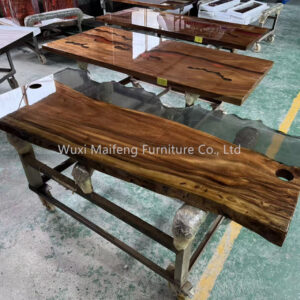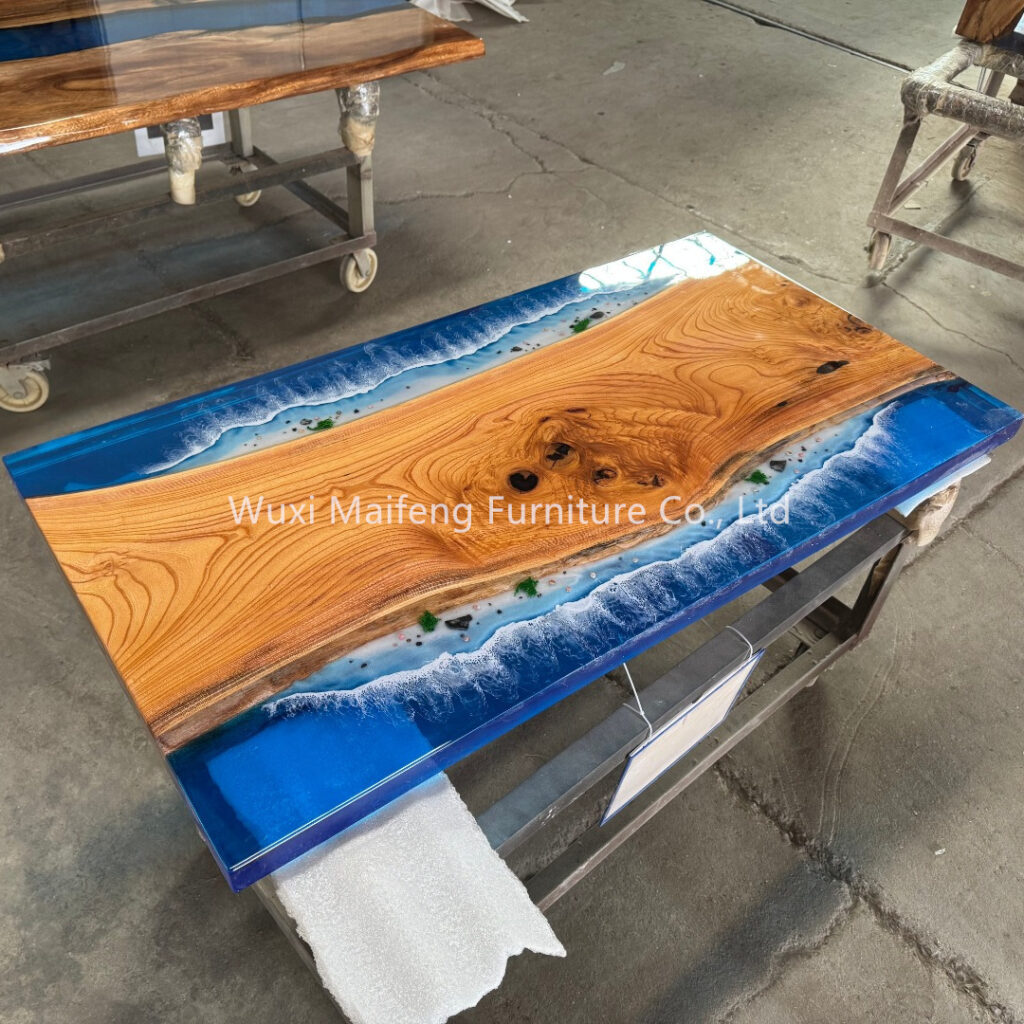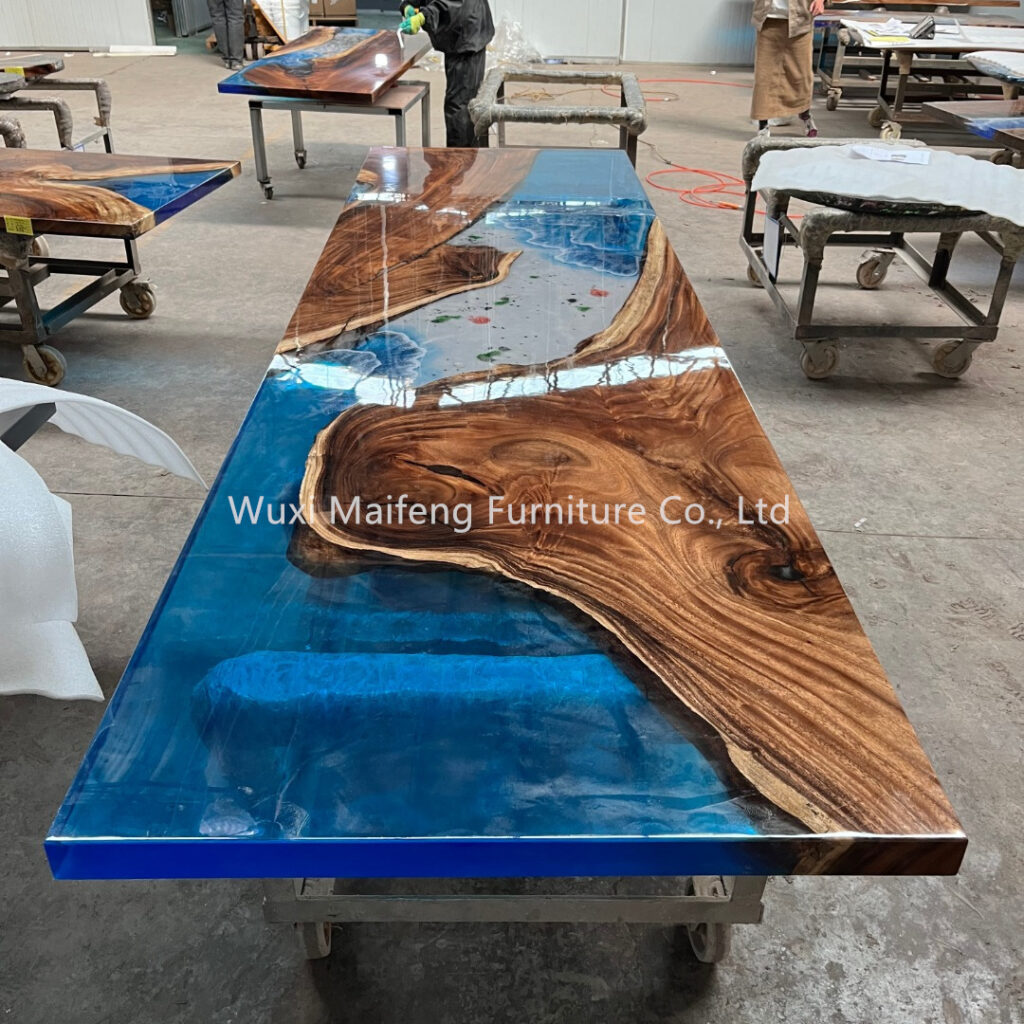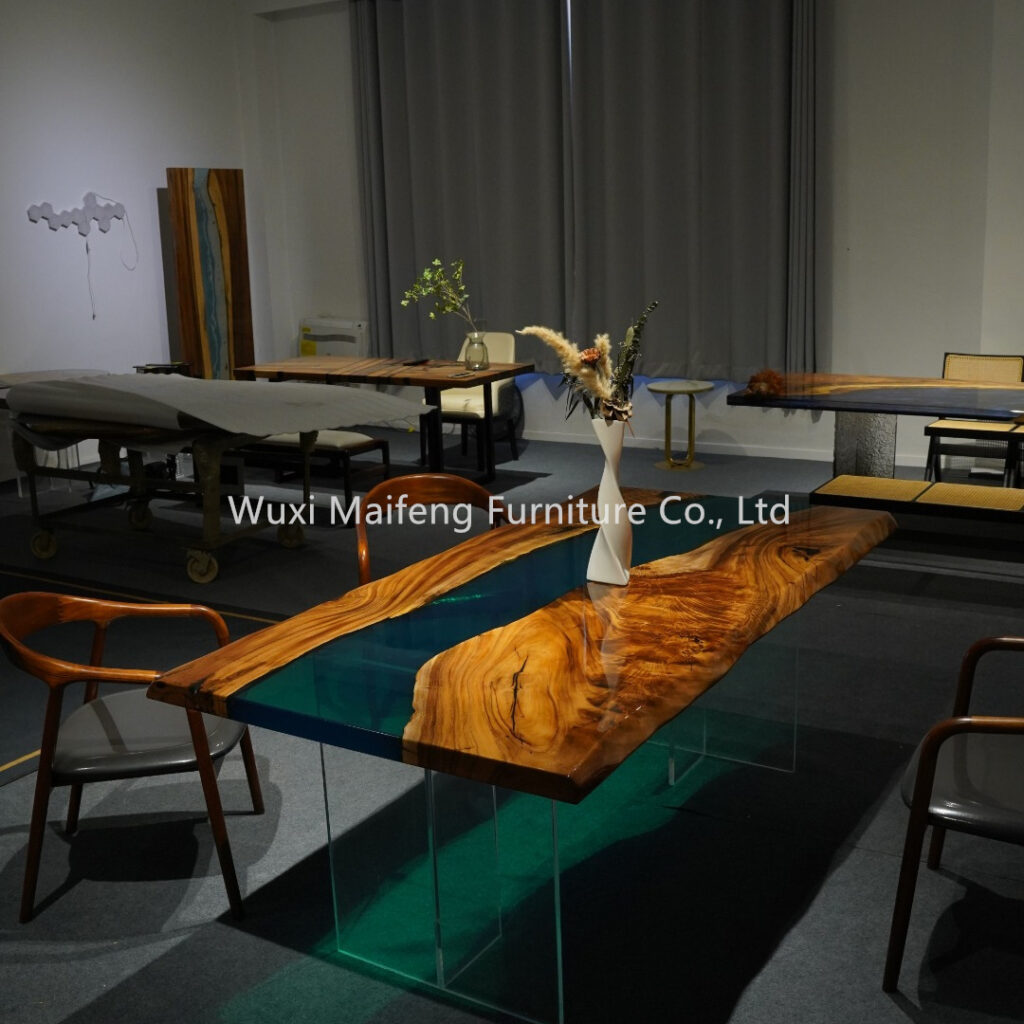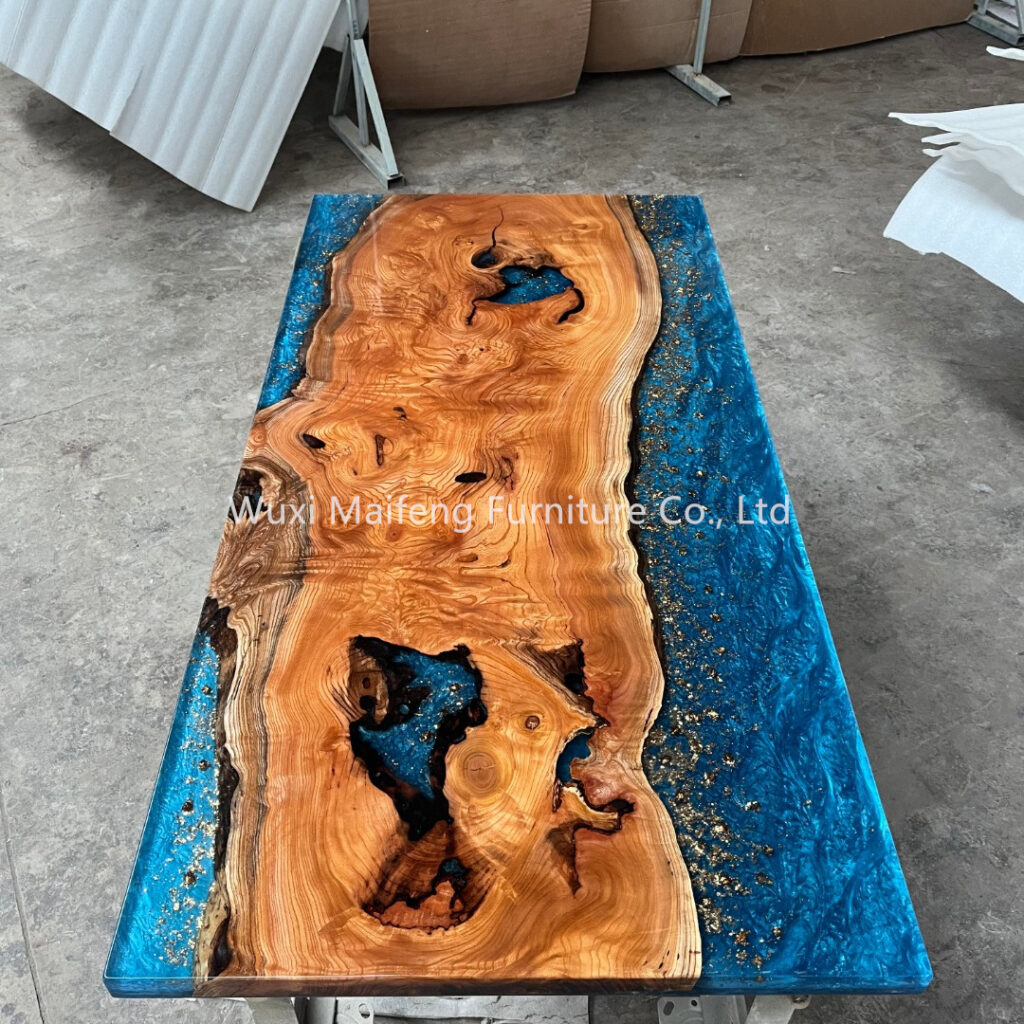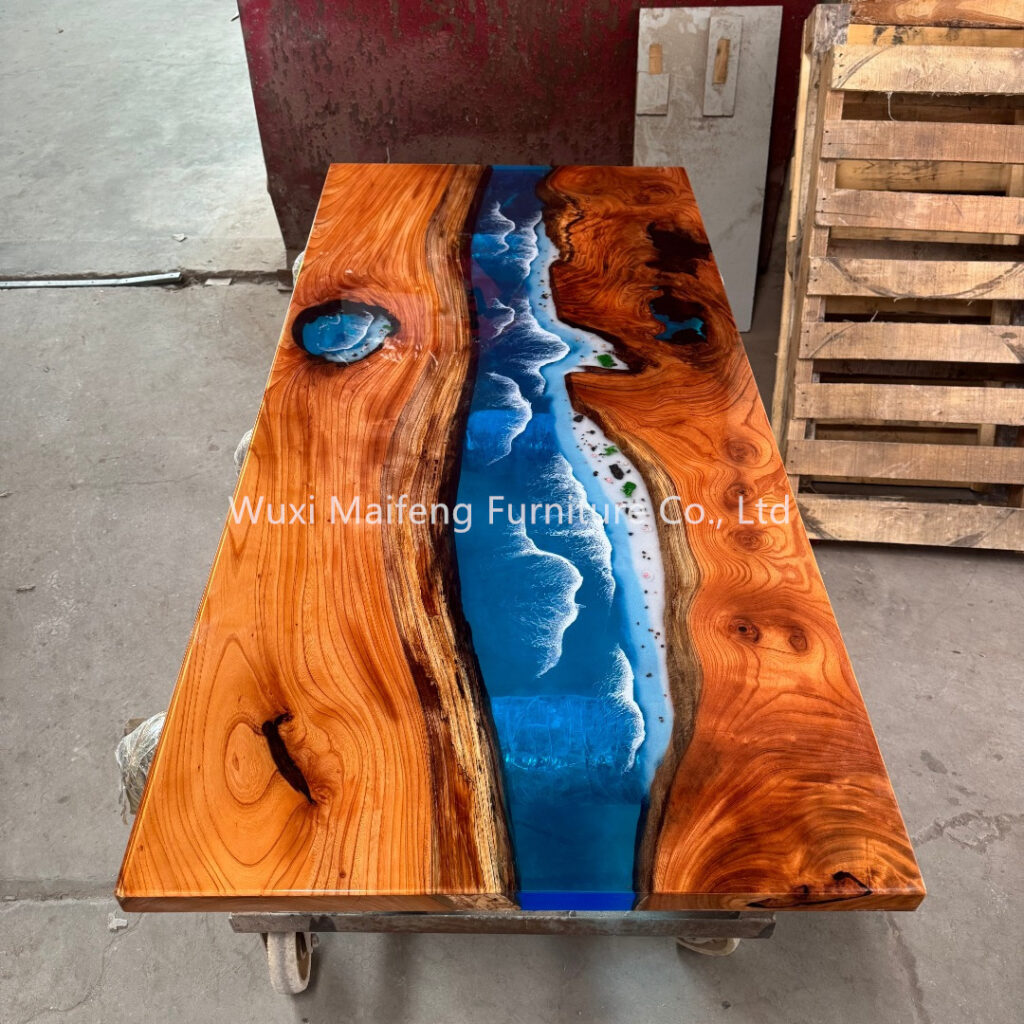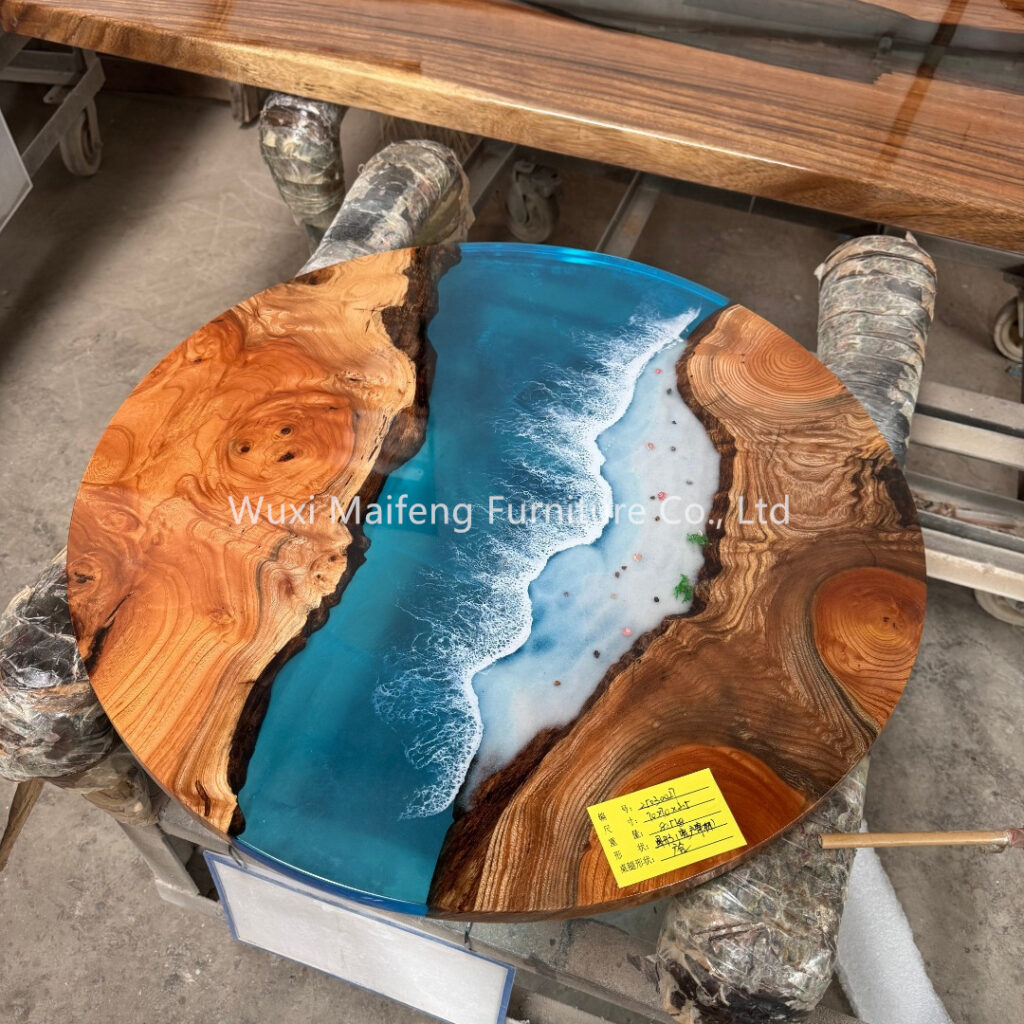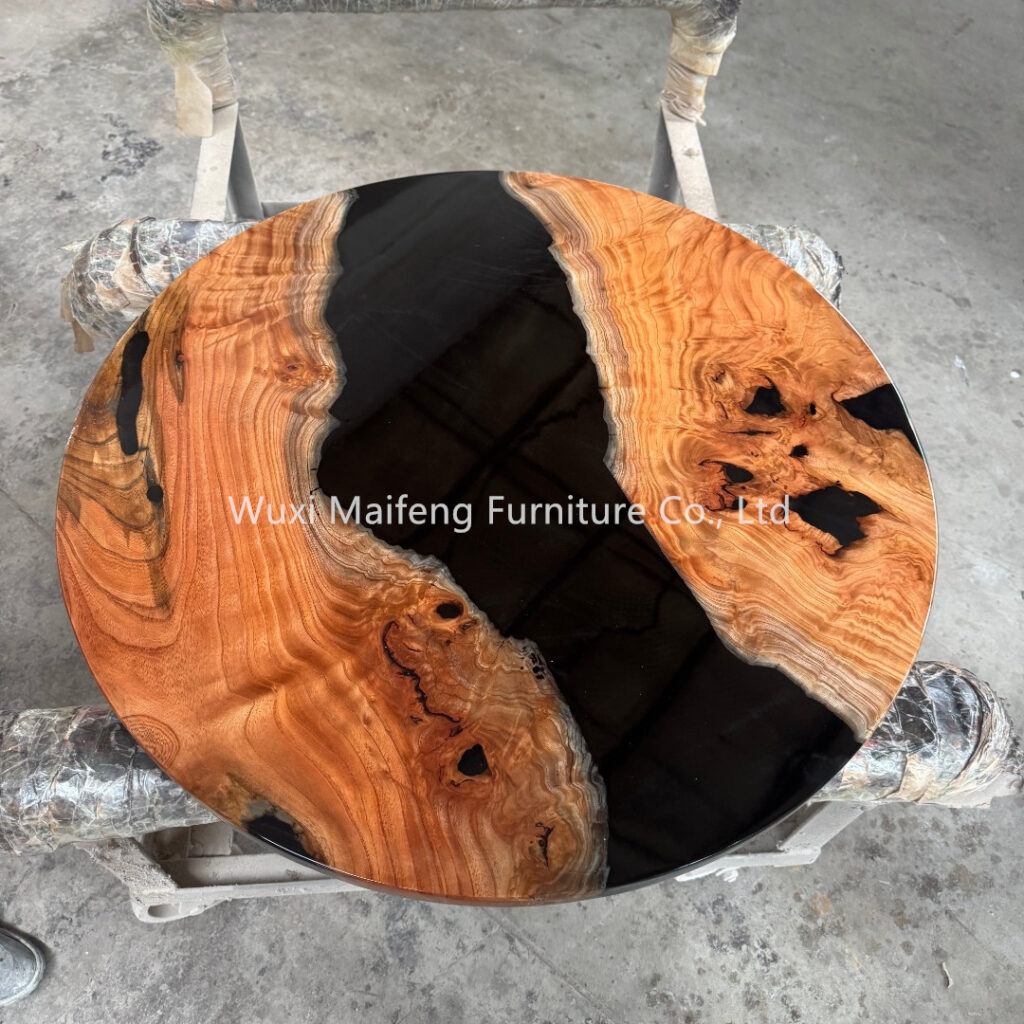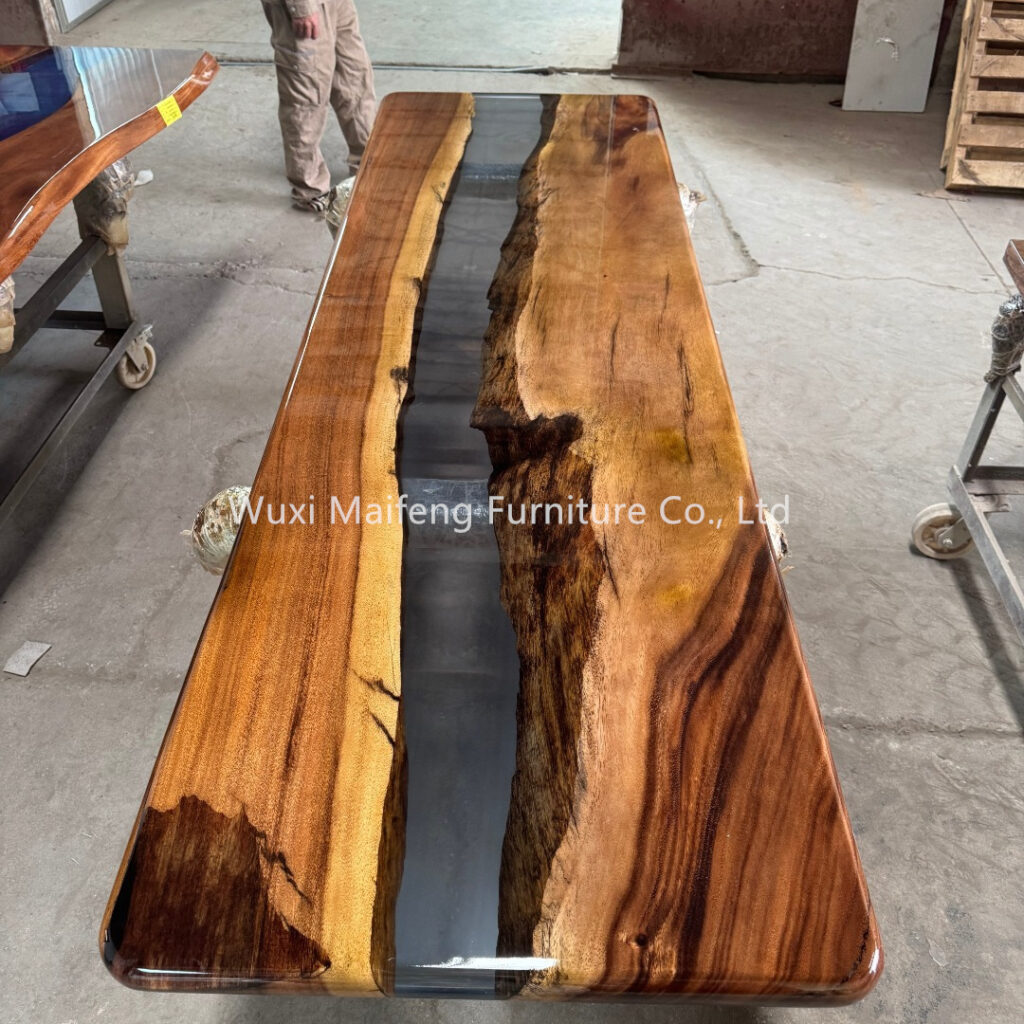1. Aesthetic Innovation
1.1 Natural – Inspired Patterns
Epoxy resin allows for the creation of intricate and lifelike natural patterns. In the future, we can expect dining tables to feature more detailed and realistic representations of elements such as flowing water, tree rings, and mineral veins. These natural – inspired designs will bring the beauty of the outdoors into the dining room, creating a harmonious connection between interior spaces and nature. For example, a tabletop might mimic the look of a calm mountain stream, with clear epoxy resin resembling water and embedded pigments or inclusions creating the appearance of pebbles and sand.
1.2 Custom – Color and Transparency Options
Customers are increasingly demanding personalized furniture. Epoxy resin dining tables will offer a wider range of custom – color options, from vibrant and bold hues to soft pastels. Additionally, different levels of transparency will be available, enabling consumers to choose a look that best suits their decor. Some may prefer a highly transparent epoxy to showcase unique inlays, while others may opt for a semi – transparent finish for a more diffused and artistic effect.
2. Technological Advancements
2.1 Enhanced Durability
Manufacturers are constantly researching ways to improve the durability of epoxy resin. Future epoxy resin dining tables will likely have enhanced resistance to scratches, heat, and moisture. New additives and curing techniques will be developed to make the material more robust. For instance, nanocomposites may be incorporated into the epoxy resin matrix to increase its hardness and wear – resistance, ensuring that the dining table can withstand the rigors of daily use for a longer time.
2.2 Smart Integration
With the rise of smart home technology, epoxy resin dining tables may also become part of the smart home ecosystem. They could be integrated with features such as built – in wireless charging pads for mobile devices, ambient lighting systems that can be controlled via a smartphone app, or even temperature – controlled surfaces for keeping food warm or cool. These smart features will not only add convenience but also enhance the overall user experience.
3. Sustainability
3.1 Use of Bio – Based Epoxy Resins
As environmental concerns grow, there is a strong push towards using more sustainable materials. In the future, bio – based epoxy resins derived from renewable sources such as plant oils, lignin, and cellulose will become more prevalent in the production of dining tables. These bio – based alternatives reduce the reliance on fossil – based raw materials, lowering the carbon footprint of the manufacturing process.
3.2 Recycling and Upcycling
Efforts will be made to improve the recyclability of epoxy resin dining tables. New recycling technologies may be developed to break down and reuse the epoxy resin, or the tables themselves may be designed in a modular way to facilitate easy disassembly and upcycling. For example, the tabletop and legs could be made from separable components, allowing for the replacement of damaged parts or the repurposing of materials in other projects.
4. Market Expansion
4.1 Penetration into Different Market Segments
Epoxy resin dining tables, which were initially popular in high – end and modern – design markets, will expand into more mainstream and budget – friendly segments. As manufacturing processes become more efficient and costs are reduced, these tables will become accessible to a wider range of consumers. This expansion will be driven by the growing demand for unique and stylish furniture at various price points.
4.2 Global Reach
With the increasing ease of international trade and the growth of e – commerce, epoxy resin dining tables will gain a broader global presence. Manufacturers will target emerging markets in Asia, Africa, and South America, where the demand for modern and high – quality furniture is on the rise. Localized marketing strategies and adaptations to different cultural preferences will be key to successful market penetration.
 |
 |




